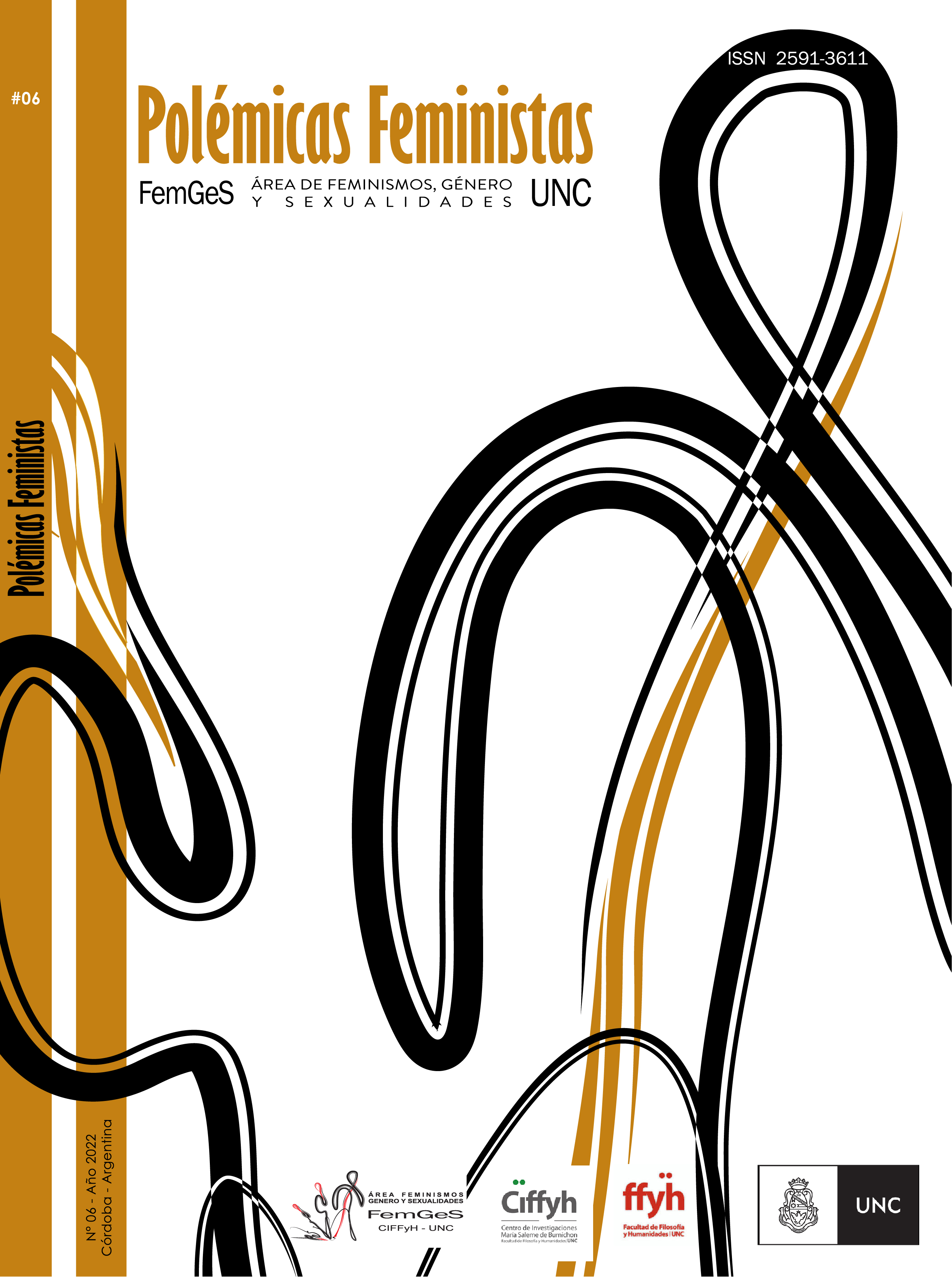Emotional and political ties for a resistance during and after prision. Collective writing of Nosotras, presas políticas and Nosotras en libertad
Keywords:
Civic-Military Dictatorship, Political Women Prisoners, Villa Devoto Prison, Memory, Militancy, WritingAbstract
In 2006, a choral and collective writing book by 112 authors was presented in Buenos Aires, Nosotras, presas políticas (We, political prisoners), which recounted in first person the experience of women activists during the repression of the ecclesiastic-civic-military dictatorship (1976-1983) in provincial prisons, “chupaderos” (a state or parastatal clandestine prison), clandestine centers and in the Devoto Prison of Argentina. The book is divided by periods of time and has an appendix of poems and drawings made during their detention, as well as letters sent to their family members. Nosotras, presas políticas rebuilt the affectivity and organizational community which allowed women prisoners to survive detention. During the 2020 pandemic (COVID-19) there is a need to narrate other experiences, those of social insertion and post-prison militancy. Thus Nosotras en libertad (We, in freedom) was produced, an e-book that recount their journeys after prison. It is written in first person by its female authors who are around 70 years old. The militants share their forms of insertion in syndicates, unions, radios, social organizations and places of militancy. We will try to reconstruct the main points of these subjective processes of writing and how restorative it was for its protagonist to be able to process their experiences and explain themselves again after going through prison and the dictatorship, in a period when preventive isolation (known in Spanish as ASPO) makes it essential to go back to useful resistance.
Downloads
References
Albornoz, Ramona (2020, octubre). Organizamos un taller. Nosotras en libertad. [Página web]. https://nosotrasenlibertad.com/libroweb/organizamos-un-taller/
Arfuch, Leonor (2016). El “giro afectivo”. Emociones, subjetividad y política. deSignis, (24), pp. 245-254.
Arfuch, Leonor (2015). Memoria, testimonio, autoficción. Narrativas de infancia en dictadura. Kamchatka, (6), pp. 817-834. DOI: https://doi.org/10.7203/KAM.6.7822
Arfuch, Leonor (2014). (Auto)biografía, memoria e historia. Clepsidra. Revista Interdisciplinaria de Estudios sobre Memoria, (1), pp. 68-81. http://ppct.caicyt.gov.ar/index.php/clepsidra/article/view/ARFUCH
Aucía, Analía; Barrera, Florencia; Berterame, Calina; Chiarotti, Susana y Paolini, Alejandra (2013). Grietas en el silencio. Una investigación sobre violencia sexual en el marco del terrorismo de Estado. CLADEM/INSGENAR.
Beguán, Viviana (coord.) (2008). Nosotras, presas políticas. 1974-1983. Nuestra América.
Bustos, Guillermo (2010). La irrupción del testimonio en América Latina: intersecciones entre historia y memoria. Presentación del dossier “Memoria, historia y testimonio en América Latina”. Historia Crítica, (40), pp. 10-19. http://www.scielo.org.co/scielo.php?script=sci_arttext&pid=S0121-16172010000100002
Casco, Judit (s.f.). Las previas. Nosotras en libertad. [Página web]. https://nosotrasenlibertad.com/libroweb/las-previas/
D’Antonio, Débora (2019). La escritura femenina como forma de intervención política (Argentina, Villa Devoto, 1976-1983). Historia del Presente, (33), pp. 42-57.
Nosotras en libertad (s.f.). [Página web]. https://nosotrasenlibertad.com/libroweb/
Oria, Piera Paola (1987).Quiero caminar. Tiempo Latinoamericano, Año V, Nº 32.
Parra, Fabiana (2016). Género, violencia sexual y dictadura. En torno al aniquilamiento de las mujeres como sujetos durante la última dictadura cívico-militar argentina. Actas de la IV Jornadas del Centro Interdisciplinario de Investigaciones en Género, Universidad Nacional de La Plata. http://jornadascinig.fahce.unlp.edu.ar/iv-2016/actas/Parra.pdf/view
Pérez Garzón, Juan Sisino y Manzano, Eduardo (2010). Memoria histórica. La Catarata.
Resistencia Pertiniana (2019, 12 de agosto). Nosotras somos el fuego. [Archivo de Vídeo] Vimeo. https://vimeo.com/353377256?embedded=true&source=vimeo_logo&owner=1718720
Simón, Paula (2020). Perder el cuerpo. Mujer y violencia en la narrativa testimonial concentracionaria argentina. Puentes de crítica literaria y cultural (7), pp. 77-85.
Simón, Paula (2019). Palabras de mujeres. Los testimonios femeninos sobre la cárcel y el campo de concentración en la última dictadura militar argentina (1983-2014). Vegueta, (19), pp. 457-485. https://revistavegueta.ulpgc.es/ojs/index.php/revistavegueta/article/view/464
Ulloa, Fernando (2005). Sociedad y crueldad. [Conferencia]. Ministerio de Educación, Ciencia y Tecnología de la Nación. Dirección Nacional de Gestión Curricular y Formación Docente. Área de Desarrollo Profesional Docente http://www.bnm.me.gov.ar/giga1/documentos/EL002016.pdf
Ulloa, Fernando. (1998, 24 de diciembre). La "encerrona trágica" en las situaciones de tortura y exclusión social. Pensar el dispositivo de la crueldad. Página/12. https://www.pagina12.com.ar/1998/98-12/98-12-24/psico01.htm
Downloads
Published
Issue
Section
License
Copyright (c) 2022 Guadalupe Arqueros

This work is licensed under a Creative Commons Attribution-NonCommercial-ShareAlike 4.0 International License.
From 2022: Attribution - Non-Commercial - Share Alike (CC BY- NC- SA 4.0)
From 2011 to 2021: Attribution - Non-Commercial - No Derivative Works (CC BY- NC- ND)






